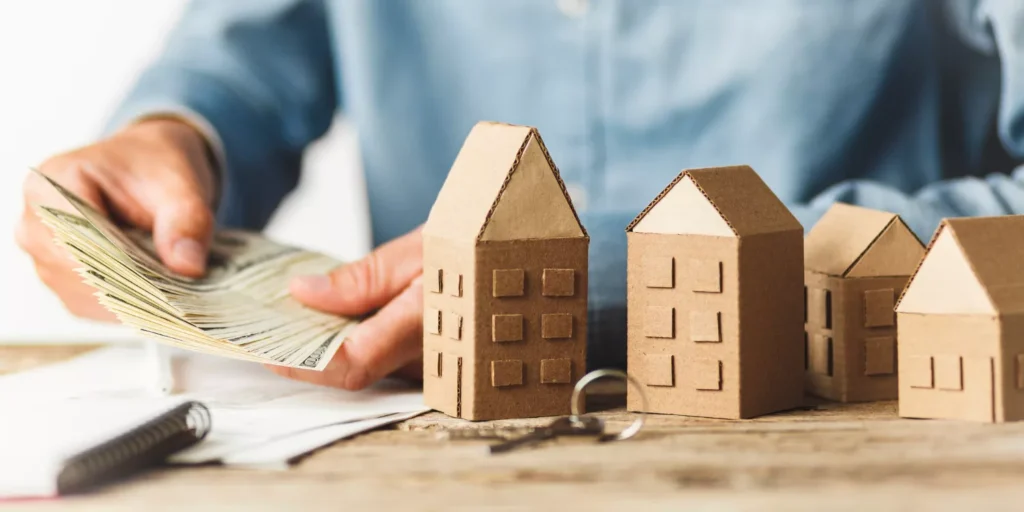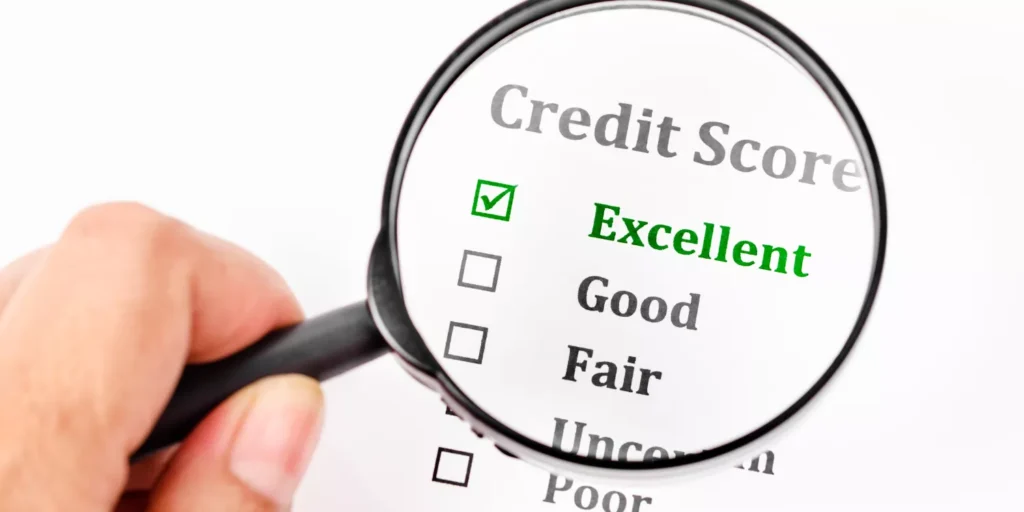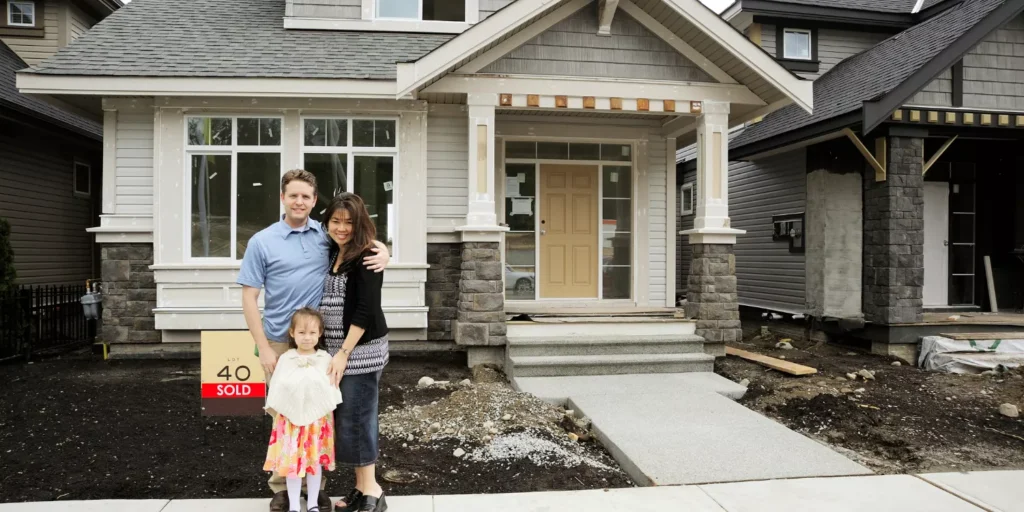Purchasing your first home is a major thing for everyone. In fact, it is a smart tactic to enhance your wealth. In this blog, we will shed light on all the important questions to ask as a first time home buyer. Keep reading on to find out all about them!
Important Questions to Ask as a First Time Home Buyer: Determining the Readiness to Become a House Owner
Taking a look at your credit score is a major step in the process of getting ready to buy a home. A good credit score means that an individual has a higher chance to qualify for a home loan, get low interest rates and thereby have a much easier time in terms of loan approval.
Moreover, you also require to have a solid sum of savings ready at your disposal for making the down payment and closing house costs, since both are vital parts of locking in a mortgage loan or home loan.
Besides this, having a stable job and income are also important aspects, primarily because lenders or lending forms need to see that you have the resources to consistently make payments.
First-Time Home Buyer Questions: Understanding Homeownership’s Financial Aspects
How much or what amount of house can I actually afford as a first-time home buyer?

Determining how much house, i.e., the amount of a property you can conveniently afford begins with your overall income. Here is where the “Rule of Thumb” comes in: Store your overall debt, including the monthly mortgage payment due in the future, at or below the mark of 43% of the pre-taxation income.
Next, think smartly about the down payment. Regular mortgages may require a minimum of 3% down payment, whereas VA as well as USDA loans provide options without the requirement of down payment. The size of the down payment has an impact on the amount you would need to borrow in addition to the affordability of properties within your purchase price range.
What is a Good Mortgage Rate?
Before applying for a mortgage loan, it is important to get a good mortgage rate. A mortgage rate is considered good if it falls under the national average. Besides this, a good mortgage rate is also one which aligns well with an individual’s financial situation. Since mortgage rates alter depending on economic factors, finalizing at a lower rate when they stumble upon one can help them save money over their loan’s life.
What is a Debt-to-Income Ratio?
The debt-to-income ratio is calculated by dividing an individual’s net monthly debt payments by their gross monthly income. Essentially, this specific number highlights lenders how much of an individual’s income has already been spoken for by other responsibilities or obligations.
A lower ratio indicates to mortgage lenders or firms that an individual is a low-risk money borrower, which can prove to be a crucial factor in securing the right home loan which is favorable. The magic number which numerous lenders look for is around 43% or lower.
Exploring Options for Mortgage
What are the Differences between Fixed-Rate Mortgage vs. Adjustable-Rate Mortgage?
A fixed rate of mortgage provides stable rates of interest throughout the term of the loan. This means that the monthly payments of individuals remain consistent, thereby making budgeting easier. On the other hand, Adjustment-rate mortgages or ARMs begin with lower rates of interests as compared to mortgages with fixed rates. These rates of mortgages for potential homes may fluctuate over time depending on the market’s conditions, which in turn could increase or decrease individuals’ monthly payments.
Stability is a trademark of fixed-rate mortgages. They offer individuals peace of mind by minimizing worries related to the rising rates of interest affecting their monthly expenses. In contrast, the ARMs have initial lower rates, which may be attractive for those planning to move or refinance before the adjustment of the rates.
Loans with fixed rates are perfect for those planning to remain in their house for a long term. Their predictable payments aid in long-term financial planning. In the case of ARMs, the potential for decreasing interest rates exists. However, the opposite also exists, i.e., the risk of the rates increasing also exists. Borrowers must also be comfortable with the unregulated variability and have a tactic or game plan ready for handling possible hikes in payments.
The situation of every buyer is unique. Therefore, consulting with a professional real estate agent or realtor can assist individuals in making the right choice between these two loan types.
What is a First-Time Homebuyer Loan?
For those buying their first-ever home, a first-time homebuyer loan comes into the picture as a solid option. This type of mortgage loan is designed to aid individuals stepping into the world of homeownership for the first time ever. With exciting perks for first time homebuyers such as lower down payment needs as well as a more forgiving criteria for credit score, this loan makes owning a home a much more achievable goal.
Numerous programs cater to individuals purchasing such as FHA, VA, as well as USDA loans, besides other conventional options. It is important to note that both VA as well as USDA loans offer individuals the chance to purchase a house with 0 down payment.
What are Mortgage Points?
Mortgage points refer to a single-time fee which borrowers pay at the time of closing in order to lower the rate of interest on their mortgage. This type of upfront payment can help first-time home buyers in saving substantial amounts over the loan’s life by minimizing monthly payments.
Buying mortgage points holds the potential to save massive amounts in terms of interest. This makes them a captivating option for those individuals planning to remain in their house for a long time. Such points are “tax-deductible” as well if individuals itemize the deductions on their federal returns.
Preparing for the Home Buying Procedure
What kind of credit score do I require to get a mortgage loan?

When buying your first house, the credit score plays a crucial role, especially in terms of getting a home loan. The credit score one requires to have for a home or mortgage loan can differ from lender to lender as well as the kind of mortgage. To obtain an FHA loan for buying the house, the FHA (Federal Housing Administration) requires at least 500 in terms of credit score.
Locking in on a competitive rate of interest is important when buying a home for the first time, since it directly has an impact on an individual’s monthly payment as well as the total cost of buying the home over the loan’s life. Lenders use individuals’ FICO credit score for the assessment of risk, thereby determining how likely they are to repay the borrowed amount.
Can You Buy a Home Without Money Down?
The answer is yes, it is possible to buy a house with no money down. VA as well as USDA loans offer complete financing, meaning that they do not need a down payment from any eligible buyer. This makes house ownership easily accessible to veterans, members of the military, as well as individuals in rural areas as stated by the USDA.
Moreover, local as well as housing state agencies and firms offer assistance programs related to down payments. These can be paired with mortgages endorsed by the FHA which offer forgivable down payment loans to obtain complete financing on the purchase of a property.
Should You Get a Pre-Approval on a Mortgage?
Obtaining a pre-approval on a mortgage is a strategic move for any house buyer. It indicates to home sellers that they are serious about purchasing a home and completely financially-ready. Pre-approval also helps individuals understand the amount of house they can afford, thereby setting realistic expectations during home searching.
A pre-approval may even lead to lower rates of interest and smoother processes of loan approval in the future. Lenders assess individuals’ financial information early on, meaning lesser surprises for both parties down the line.
Navigating the Transactions of the Home Buying Process
What is Meant by a Buyer’s Agent?
A buyer’s agent refers to a real estate professional who is committed to aiding home buyers throughout the process of purchasing a house. They have a major role in determining where suitable homes are located, negotiating costs, and most importantly, facilitating communications with all the other involved parties.
The services offered by this individual generally involve no direct cost to the individual purchasing the property. This is primarily because their commission or earning generally comes from the proceeds of the seller at the time of closing. Property buyers benefit significantly from this kind of expert services without needing to worry about any kind of added expense for their guidance as well as advocacy.
Who Should Pay for a Home Inspection?
Home buyers generally cover the entire home inspection’s cost. They do so in order to obtain insights related to the condition of the house they are considering to purchase. A home inspector’s report can reveal if any kind of major repair or maintenance problems exist before the official purchase is finalized. The costs of the home inspections range between $300-$500. Investing in a detailed inspection facilitates buyers to avoid any sort of unpleasant surprises when they move in.
Does a Seller Have the Option to Refuse Making Repairs?
Yes, a seller has the freedom to refuse when it comes to making major repairs. This decision generally depends on the terms established in the contract of purchase between both the parties, i.e., the buyer and the seller.
If the house inspection report reveals issues, sellers may not opt to get them fixed, especially if they have firm belief that their property will get sold irrespective of the issues. Buyers have the right to walk away or opt out of a sole if they are not happy with the results of the home inspection. They will not face any kind of penalty for canceling under such circumstances.
What Happens at Real Estate Closings?
Here is a detailed look at what happens during a real estate closing:
- Final Walkthrough: Individuals inspect the property for a final time to make sure that all the agreed-upon repairs or renovations have been made and that the property is in the condition promised by the seller.
- Signing Documents: Individuals sign a plethora of legal documents, which includes the loan agreement, assuming that they are taking out a mortgage.
- Paying Closing Costs: Besides the price of the home, individuals need to pay the required fees which cover the loan’s processing, conducting the title research, as well as handling transfer taxes besides others. It is important to note that the payment and closing costs cover around 2 to 6% of the entire loan amount.
- Transfer of Title: The house’s official title or legal ownership gets transferred to the name of the purchaser from the seller.
- Receiving Keys: Once all the paperwork has been signed and the payments have been made, the new owner receives the keys to their new house.
- Setting Up Escrow Accounts: If the lender requires an escrow account for the purpose of dealing with property taxes as well as the private mortgage insurance, it is opened at this particular stage.
- Recording Deed & Mortgage: The local government holds the record of the deed in the buyer’s name and notes their lender’s interest in their property as security for their mortgage loan.
Considerations After Purchasing a New House
How Soon Can You Move Into the New House After Buying It?
The timeline for shifting to a new home depends on numerous factors, especially on the terms set up during the sale. The process of mortgage itself takes approximately three to six weeks in a market which is stable. In certain cases, an agreement offers the seller 2-3 days to vacate the property after the closing. This means the individual purchasing the house may need to wait a little longer to get the keys.
What Should Be Done After Moving into a New House?

Here are some important steps new house owners should take after moving into a new house:
- Getting the Locks Changed: Safety should be your utmost priority as a new homeowners One may never know how many spare keys the last owner handed out, which is why contacting a locksmith and securing the house before you move into your new home is a must.
- Inspecting Smoke Detectors & Carbon Monoxide Detectors: New owners must ensure that these are fully functioning for the sake of their well-being. If needed, they should replace old batteries with new ones.
- Establishing Utilities in their Name: New owners must transfer utilities such as water, gas, or electricity to their name for avoiding service interruptions.
- Performing an In-Depth Cleaning of the House: Even if the house looks shiny and clean, it is important to give the house a proper cleaning to get rid of hidden dust and debris.
- Introducing Themselves to Neighbors: Building good relationships with neighbors often makes living in a new house a better experience in addition to amplifying security.
- Exploring HOA’s Rules: Exploring the established rules if the house comes under a homeowner’s association is an important step. Individuals are advised to carefully review the regulations for avoiding any fine or dispute.
- Updating the Address: Changing their address for every important document or service is important for new owners to ensure they do not miss receiving any important mail.
- Assessing the Condition of Important Systems: New owners should take a look at their new home’s HVAC unit, wiring, plumbing, etc., to recognize any areas which require immediate repairs.
- Planning for Investments in the Future: As a new owner, it is important to consider any long-term investments like home warranty, upgrades, etc., which could add value to your home.
- Frequently Inspecting for Pests: Early detection of pests can prevent any major infestations in the line, which is why new owners should frequently conduct checks.
Final Thoughts
Buying your first home is a special thing and asking the right questions can help in making a major difference. Armed with all the correct first-time home buyer questions, new home buyers can un-complicate the complex process of buying their dream home. After determining a good time to buy a new home, it is important to make sure to ask questions about financial aspects, comprehending conventional mortgage options, as well as preparing for both the pre and post-purchase conditions.
Having knowledge empowers individuals to make informed decisions which pave the path to obtaining a valuable asset and crafting long-term wealth. Engage completely in the adventure by keeping the aforementioned common questions in mind to ask the sellers during the house hunting journey.




